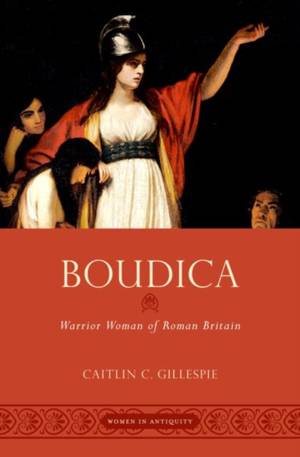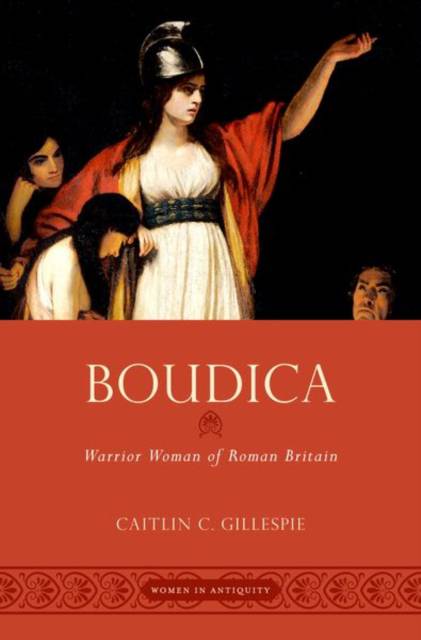
- Afhalen na 1 uur in een winkel met voorraad
- Gratis thuislevering in België vanaf € 30
- Ruim aanbod met 7 miljoen producten
- Afhalen na 1 uur in een winkel met voorraad
- Gratis thuislevering in België vanaf € 30
- Ruim aanbod met 7 miljoen producten
Zoeken
€ 126,95
+ 253 punten
Omschrijving
In AD 60/61, Rome almost lost the province of Britain to a woman. Boudica, wife of the client king Prasutagus, fomented a rebellion that proved catastrophic for Camulodunum (Colchester), Londinium (London), and Verulamium (St Albans), destroyed part of a Roman legion, and caused the deaths of an untold number of veterans, families, soldiers, and Britons. Yet with one decisive defeat, her vision of freedom was destroyed, and the Iceni never rose again. Boudica: Warrior Woman of Roman Britain introduces readers to the life and literary importance of Boudica through juxtaposing her different literary characterizations with those of other women and rebel leaders. This study focuses on our earliest literary evidence, the accounts of Tacitus and Cassius Dio, and investigates their narratives alongside material evidence of late Iron Age and early Roman Britain. Throughout the book, Caitlin Gillespie draws comparative sketches between Boudica and the positive and negative examples with which readers associate her, including the prophetess Veleda, the client queen Cartimandua, and the rebel Caratacus. Literary comparisons assist in the understanding of Boudica as a barbarian, queen, mother, commander in war, and leader of revolt. Within the ancient texts, Boudica is also used as an internal commentator on the failures of the emperor Nero, and her revolt epitomizes ongoing conflicts of gender and power at the end of the Juilio-Claudian era. Both literary and archaeological sources point towards broader issues inherent in the clash between Roman and native cultures. Boudica's unique ability to unify disparate groups of Britons cemented her place in the history of Roman Britain. While details of her life remain elusive, her literary character still has more to say.
Specificaties
Betrokkenen
- Auteur(s):
- Uitgeverij:
Inhoud
- Aantal bladzijden:
- 216
- Taal:
- Engels
- Reeks:
Eigenschappen
- Productcode (EAN):
- 9780190609078
- Verschijningsdatum:
- 12/02/2018
- Uitvoering:
- Hardcover
- Formaat:
- Genaaid
- Afmetingen:
- 155 mm x 236 mm
- Gewicht:
- 340 g

Alleen bij Standaard Boekhandel
+ 253 punten op je klantenkaart van Standaard Boekhandel
Beoordelingen
We publiceren alleen reviews die voldoen aan de voorwaarden voor reviews. Bekijk onze voorwaarden voor reviews.











